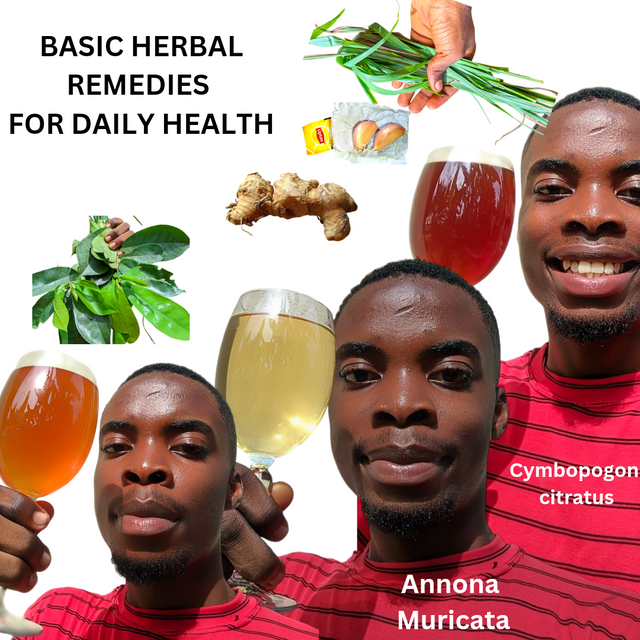
designed using canva
It's interesting to know we were told to prepare the herbal medicine we talked about last week. I enjoy when others prepare the herbal medicine for me more than doing it myself. So today, I did three herbal medicines, which all have different purposes, all for the good working of the body.
I can remember when I was ill and was bedridden; my neighbours were the ones that prepared lemongrass grass tea with milk and gave me a drink as it was hot to cure a cold and malaria. I'll be elaborating more on this with video tutorials to show evidence that I was the one who prepared it.
Herbal Tea Preparation
Prepare a herbal tea for digestion or stress/anxiety. Documenting the steps, proportions, and effects felt after drinking them. |
|---|
The herbal tea I want to prepare for digestion, stress, and anxiety is lemongrass tea. Why did I choose lemon grass? I chose lemongrass as my herb because the leaves contain vitamins, minerals, and antioxidants that stimulate digestion and bowel movements. It has therapeutic properties that help relieve stress and anxiety.
It is commonly known as fever grass in my region and botanically known as Cymbopogon Citratus. Lemon grass has been known for its ability to relieve the mind and body from stress resulting from strenuous work. It is also known to cure colds and can be inhaled for that purpose.
It's also known for its aroma when boiled on heat. Either taken orally or inhaled, it can still work or achieve the same result. Those natural compounds in its leaves relax the mind and reduce feelings of tension.
Irrespective of the fact that it helps in relaxation, it can also be dangerous if taken overdose. It can cause drowsiness and uncomfortable feelings. Pregnant women are not advised to take it because it can cause miscarriage.
For digestion, it contains compounds that can kill harmful bacteria in the stomach to prevent stomach upset and also help ease digestive issues by producing piles to break down food in smaller quantities. It is best served hot as a medicinal herb. How did I prepare this herbal tea?
Ingredients
Lemongrass tea doesn't require many ingredients. Some people boil it plain and drink it like that without adding anything. The ingredients I used in preparing this lemongrass tea are:
| Lemon grass leaves | Ginger |
|---|---|
| Lipton | Sugar |
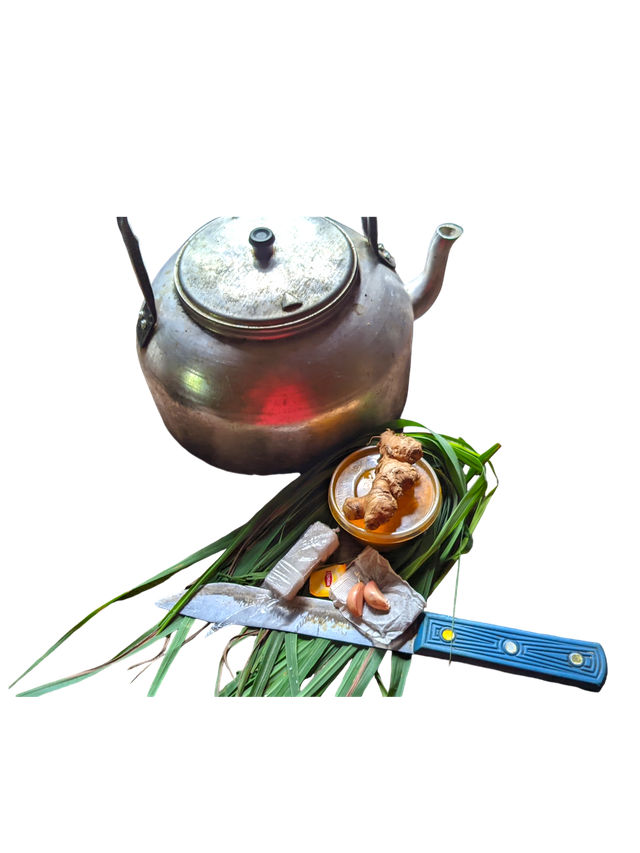 | Ingredients |
|---|
These are the only ingredients used to make this tea. You may be wondering why I had to put Lipton and sugar. Here are reasons for doing so. One major reason it's added is so as to prevent drowsiness. It is also rich in what we call polyphenols that support the immune system and combine with lemon grass to prevent the body from colds and other infections.
The adding of sugar is so the lemongrass juice of tea can have taste, as it's always bitter, especially when mixed with Lipton. Here are the steps I took to prepare this tea.
Steps
Pluck some leaves of lemon grass—at least a handful of it—and wash with clean water. After washing properly for sand and germs to come off the leaves, you contain it in a container or plate. You then add ginger to make the lemon grass hot and refreshing.
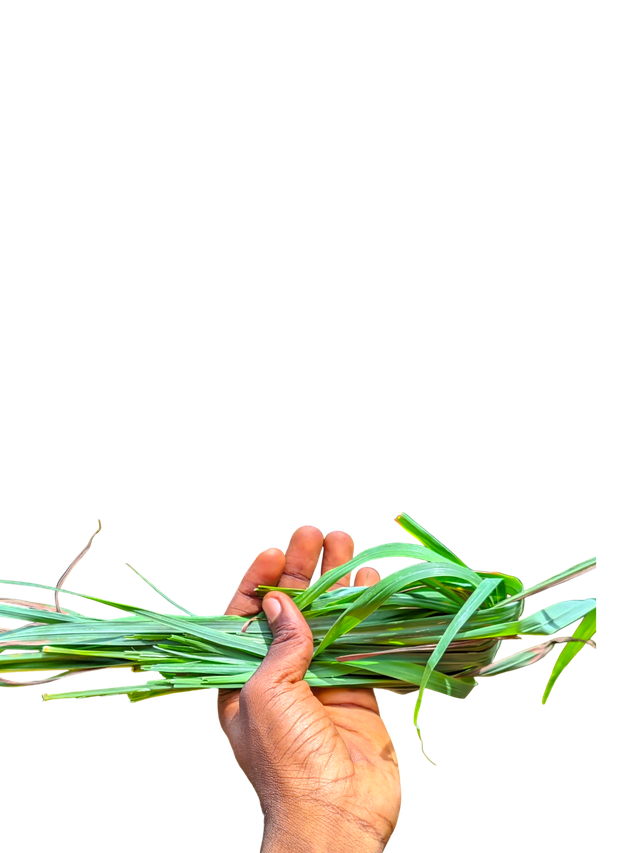 | 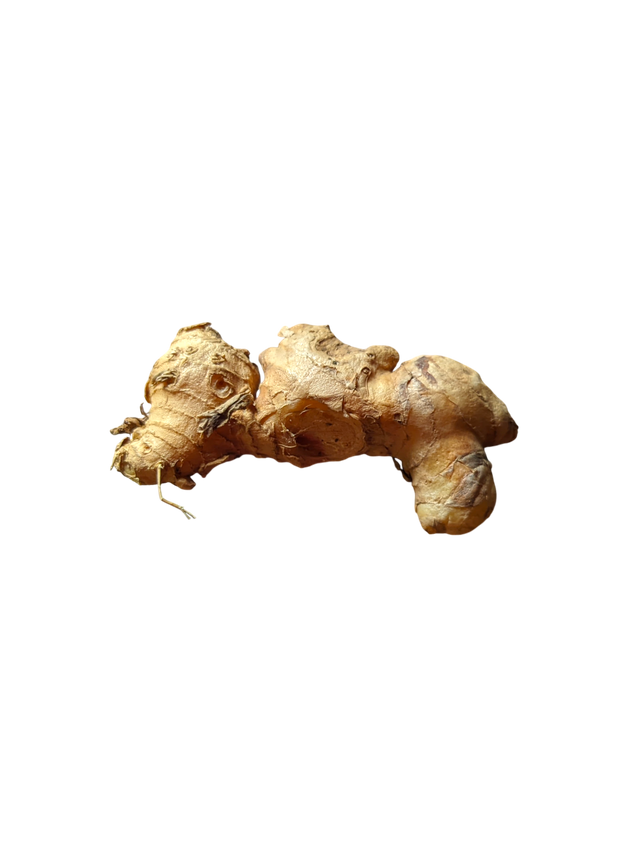 | 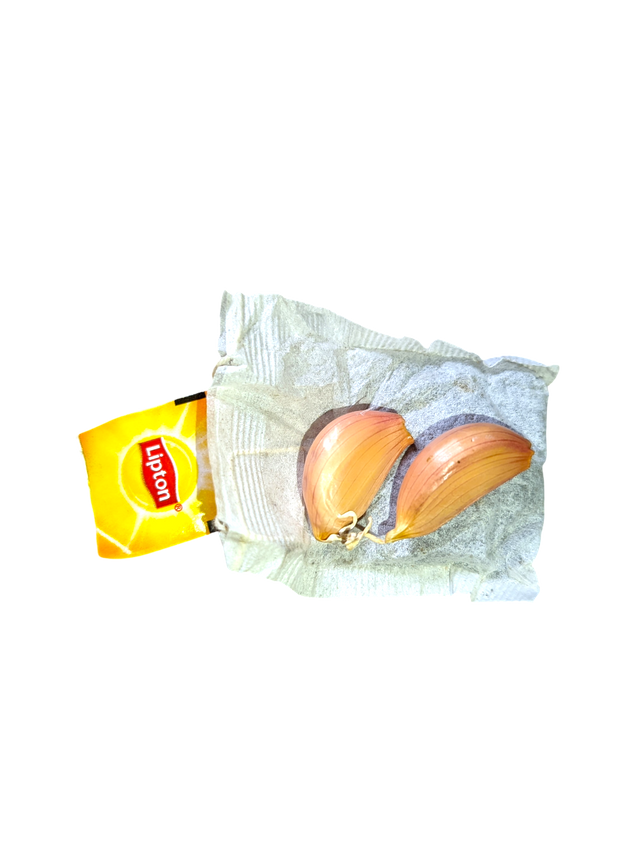 |
|---|
The benefits of ginger in the tea are that it helps in strengthening and boosting the immune system. It also helps in preventing a cold from entering the body of an individual since it is very hot.
- After peeling a tuber of ginger, I washed it and then cut it into small pieces and contained it in the sand plate I used in putting my lemon grass. When everything was ready, I emptied my ingredients into a kettle and placed the lipstick's label outside the kettle so I could remove it with ease. I had to wait for 10-15 minutes while exposing the mixture to slow heat from the heat source.
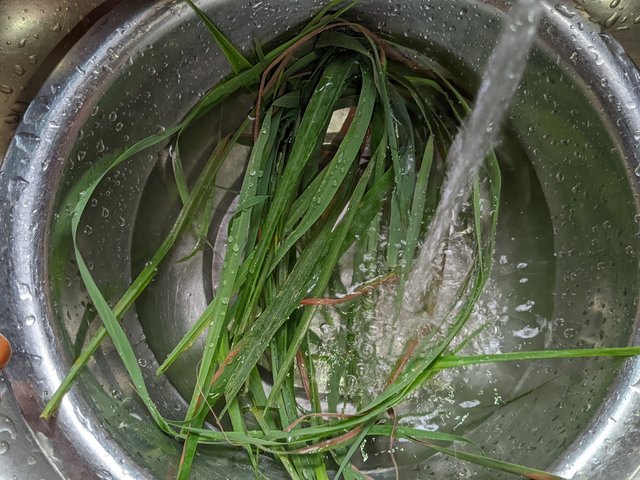 | 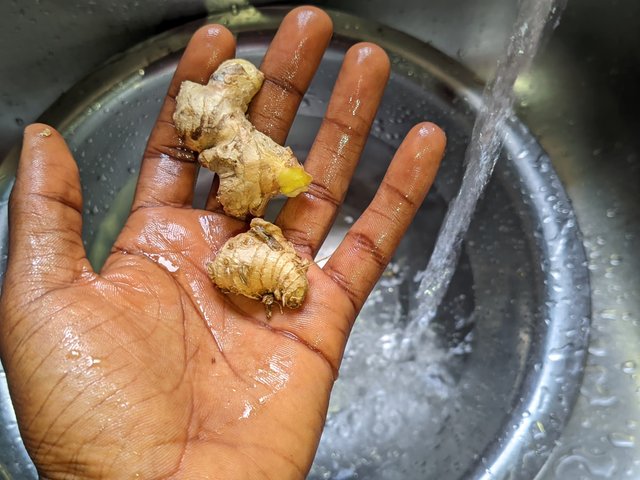 | 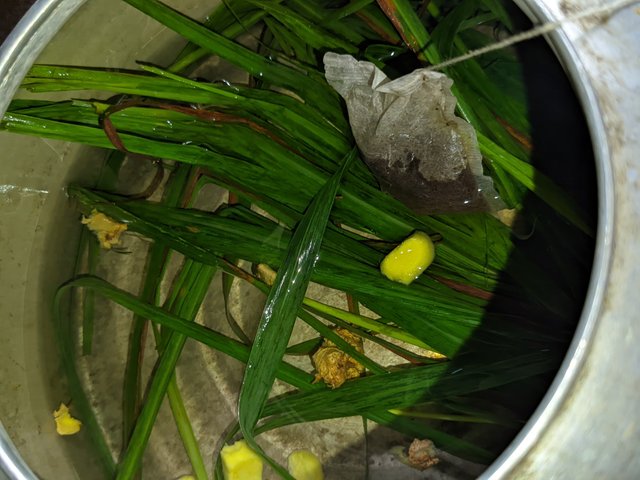 |
|---|
- After heating the mixture for 12 minutes and the aroma started filling the kitchen, I knew my mixture was half way done. I had to wait a few minutes before bringing it off the heat source.
- Once I took the kettle off the heat source, I ensured my mixture or tea was filtered so as to prevent impurities from getting inside. After filtering, I transferred it to a glass cup as it was still hot and drank it all. I usually use that cup as my measurement to avoid drowsiness and weary eyes. The video and picture explain this best. If you check the colour of the tea, it's kind of red. It's dark because of the presence of Lipton, which segregated its compound and mixed with the leaves.
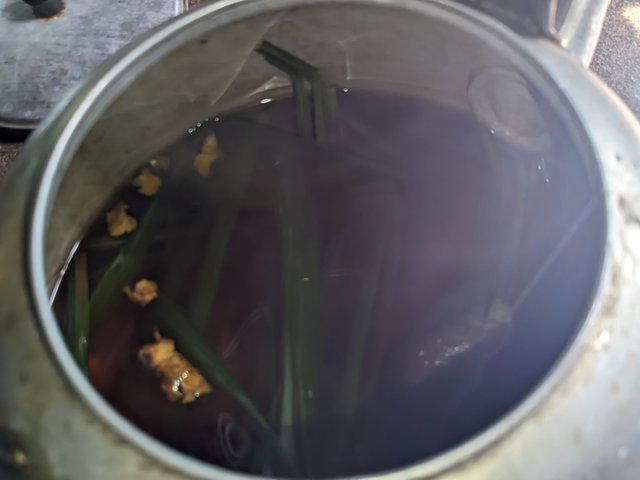 | 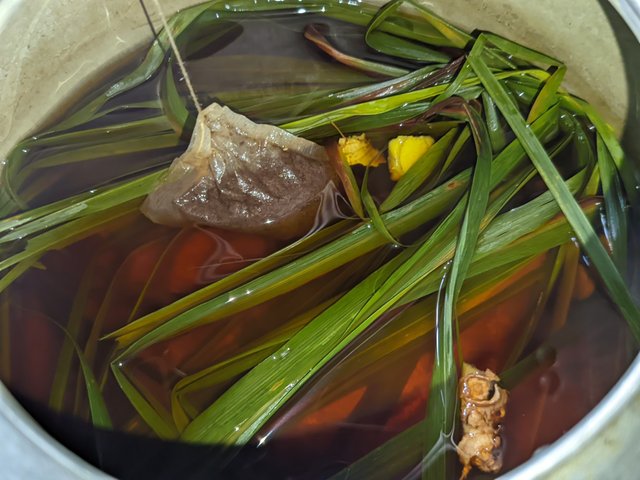 | 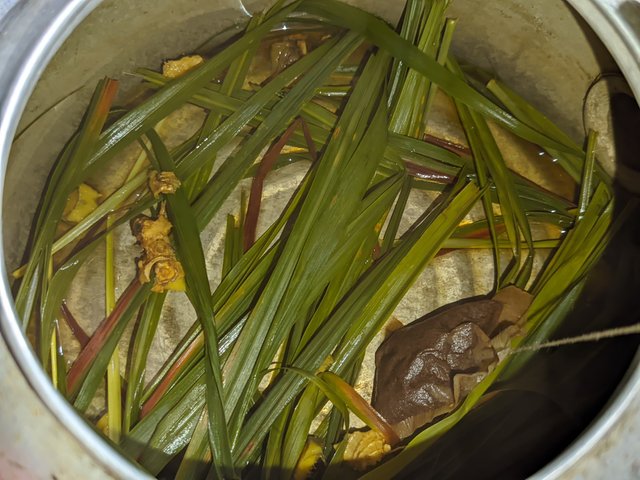 |
|---|
- I then added sugar in a glass cup, filtered the water from the leaves, and then emptied it into the glass cup to full. I mixed the sugar to level or balance with the tea, and that's how I got my lemongrass tea.
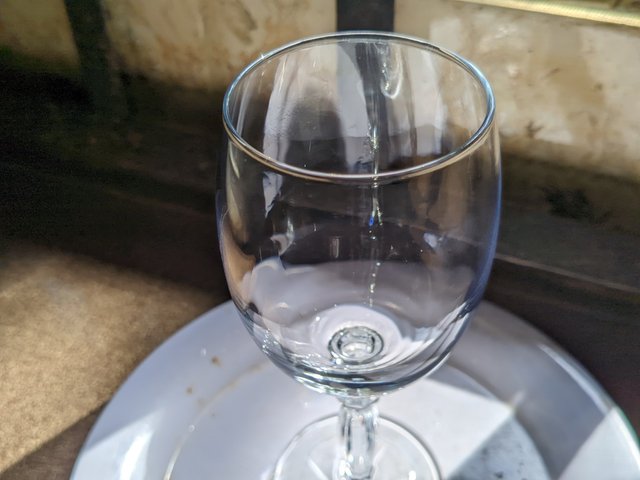 | 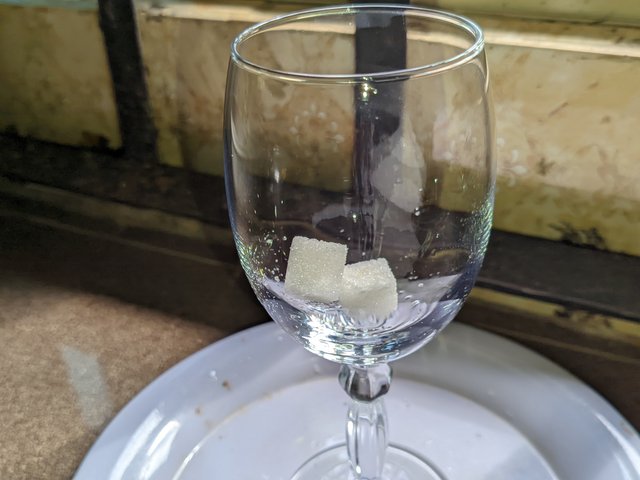 | 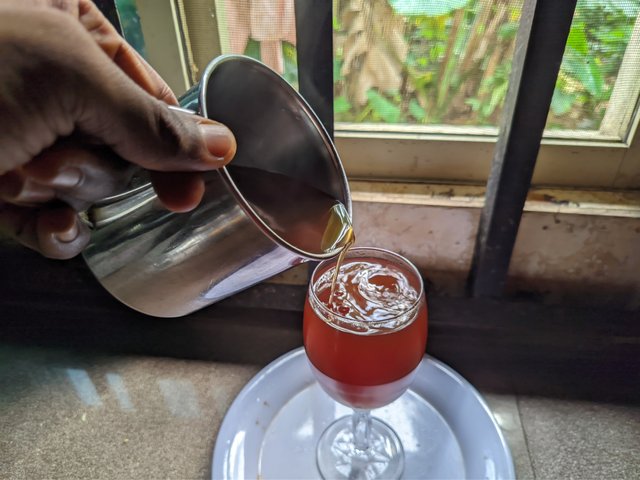 |
|---|
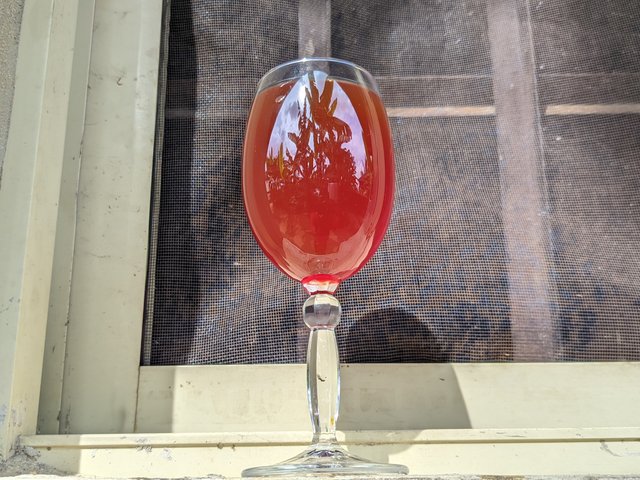
| Proportion | There's no fixed measurement for herbal medicine. You just have to be strategic. The glass cup I used is a perfect measurement for use when taking this tea. It's as strong as caffeine. If you don't have this cup, you can strategize in such a way that you don't take it as if you're drinking wine. |
|---|
No matter how good you are at drinking beer, don't compare it with this tea. It's today I knew the effect of this tea. Effects were already mentioned at the onset of this question, but to me, the effect it had on me was a positive one.
I felt relieved somehow, though I wasn't stressed. I feel it's a very good therapeutic tea. Drinking it in moderate proportion exposes you to the positive effects of digestion and relief from anxiety, but drinking it more than the normal proportion can have dangerous effects on you.
 | Me and my lemon grass tea |
|---|
Herbal Storage
Research the best ways to store herbs at home; take pictures of your storage method and explain why it works. |
|---|
There are various ways of storing herbs at home, and since the contest demands pictures of my own storage method, I'll direct my attention to fresh herbs that are used at home. Herbs like lemon grass, vinegar, and also Vera and ginger. These are the most commonly used herbs in my house and are usually stored in the refrigerator.
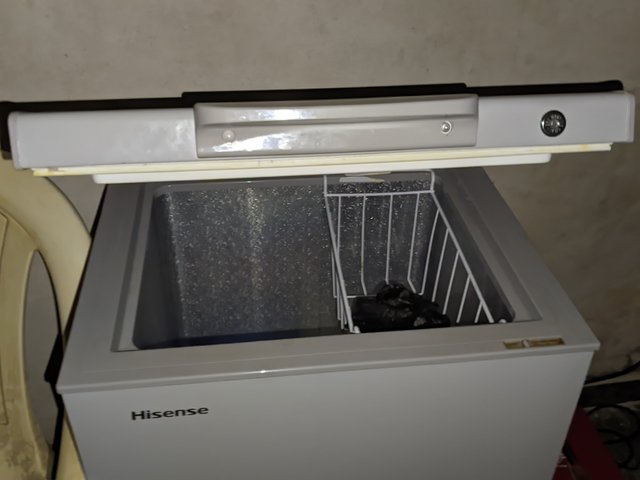 | 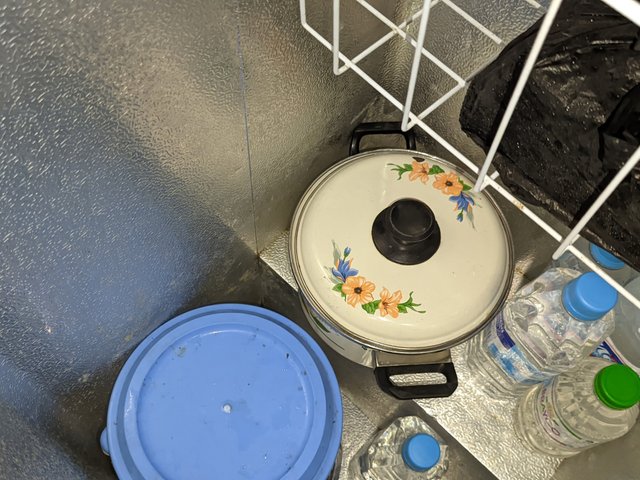 |
|---|
My mom loves storing it herself by wrapping it in a polythene bag or nylon to maintain a balanced level of moisture while still allowing space for air to touch the leaves slightly.
The refrigerator is used to keep these leaves fresh without getting dry. For lemon grass, I usually wrap it around a nylon and put it in the refrigerator to maintain its freshness, as I love drinking fresh lemon grass tea. Vinegar too is stored in a container not in polythene, though to maintain its freshness and be good for use at any time. Storing it in a refrigerator helps retain the moisture of the leaves and prevents the stalks of the leaves from drying.
From the picture, you can see with me that this is my refrigerator, and the polythene bag on top of the setter has lemongrass in it and another substance placed on it. I also love storing my ginger in the refrigerator, though it's rare to see ginger dry so fast even without being in a refrigerator.
For dry herbs like roots and stems with some leaves, my dad used to store it in a bottle filled with alcohol to still preserve its nutritional and medicinal content. These are ways herbs are stored in my home.
Home Remedy Creation: Create your own herbal remedy for a common cold or digestion issue, documenting the ingredients, preparation steps, and your experience. |
|---|
You may wonder why I didn't use lemon grass to explain this but rather use sour sop leaves. Both herbs are very good at curing colds, especially sour sop leaves. If you compare the two, sour sop heals faster than lemon grass and can be taken fresh and boiled or taken dry and boiled. Some people love it fresh, while others love it dry. For me, I love it fresh, as the green pigment of the leaves contains.
Someone told me to use this herb—sour sop leaves as it works faster than others. So I decided to try it. Why sour sop leaves? Sour sop leaves contain compounds that reduce inflammation and relieve the body from symptoms of cold and discomfort while breathing. It boosts the immune system, which fights against any form of cold and its causes.
The presence of acetogenins helps the body fight off a cold virus and its pathogens. Aside from cold treatments, it can be used for other basic medicinal treatments like malaria and typhoid. There's this feverish feeling I usually have anytime I have symptoms of malaria and typhoid.
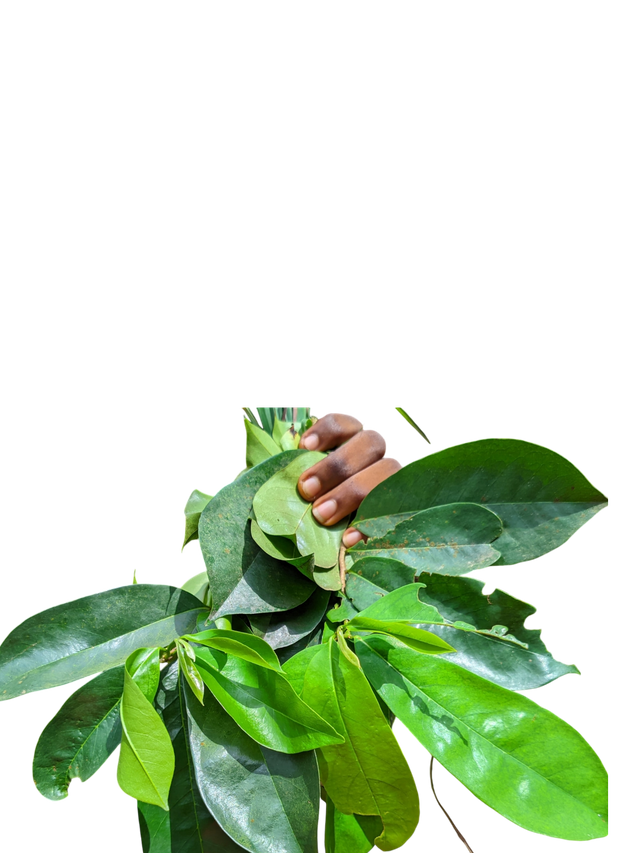
I'm always cold and shivering as if an ice block is placed on my spine. So how does this medicinal combination of sour sop leaves and ginger work? Ginger helps a lot with coughs and colds. So it's a blend. The ingredients I used in preparing this herbal tea include;
Ingredients
| Sour sop leaves | Ginger |
|---|
These are the two ingredients I used. The use of other herbs in combination can prove effective, but I don't really know how to combine. Just the ginger and pigment from the leaves go a long way. This tea is also very good at curing headaches immediately.
Steps: Preparation
- I plucked a reasonable number of leaves from the sour sop tree for usage. I plucked the fresh green leaves and wasn't interested in using the dry ones. After plucking it from the tree, I took to washing the leaves properly, as some insects do perch on this leaf.
 | 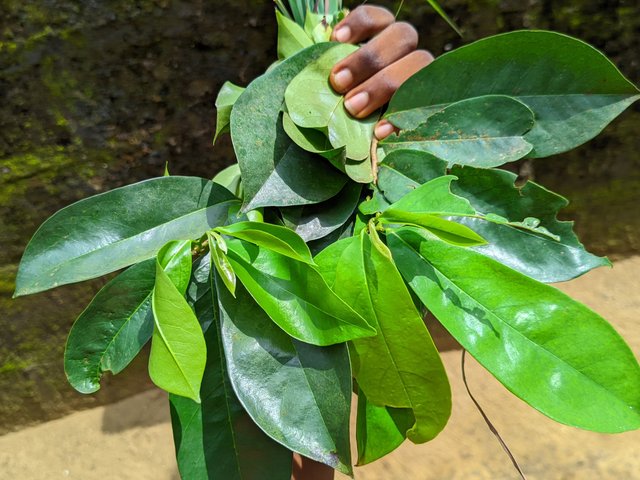 |
|---|
- After washing, I put it in a kettle and put water to level with the leaves. I also sliced my ginger to enhance the medicinal effects and boiled for 8 minutes in medium heat.
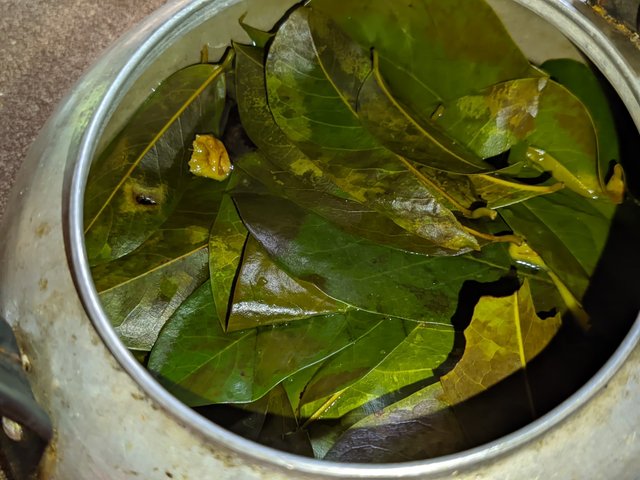 | 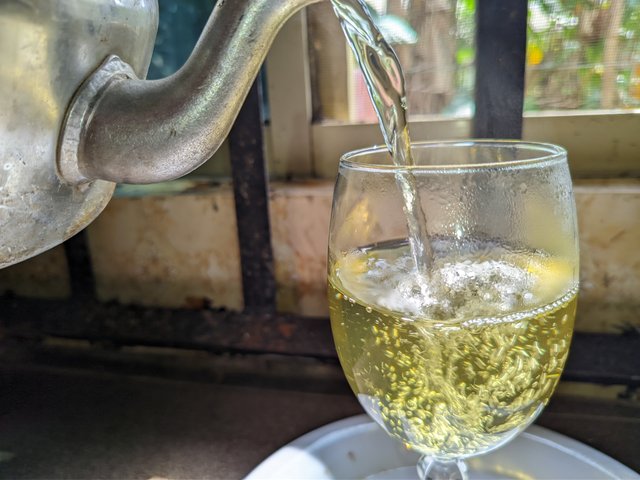 | 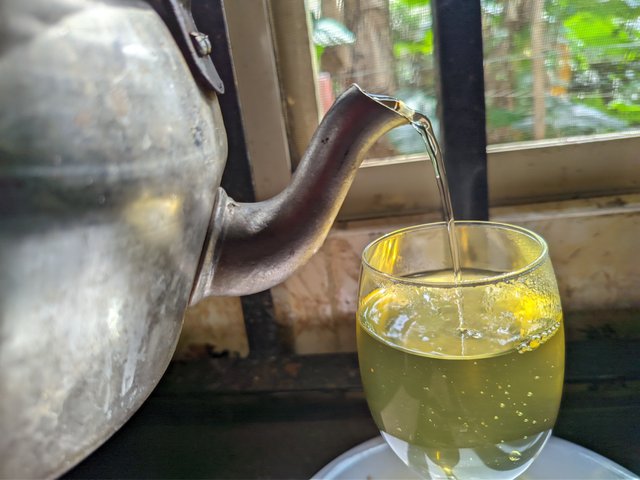 |
|---|
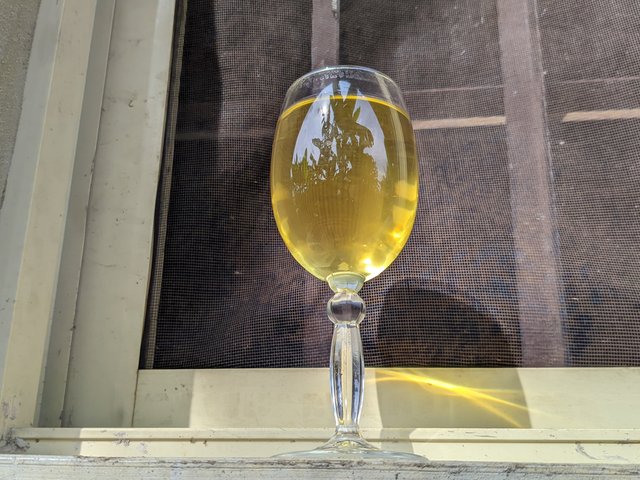
- I filtered it hot and drank it hot with a spoon. It was not as dark red as the lemon grass. It was pale green, as shown in the picture below.
Proportion
I avoided using too many leaves as it can increase the concentration of compounds in the leaves to the tea, which can bring about side effects.
- I didn't boil it for more than 10 minutes, which can heat up the nutrients in the leaves, and the medicinal value and effect would be diminished somehow.
- A glass cup of this size is what I used in taking this tea to avoid overdosing, which can be very dangerous to my health, bringing about side effects.
 My sour sop leave tea and I
My sour sop leave tea and I
---|-----
I explained the effects at the onset. It works faster at curing colds than other herbs. The presence of some antibacterial and antiviral compounds boosts the immune system, preventing it from infections and pathogen attacks.
| Process | 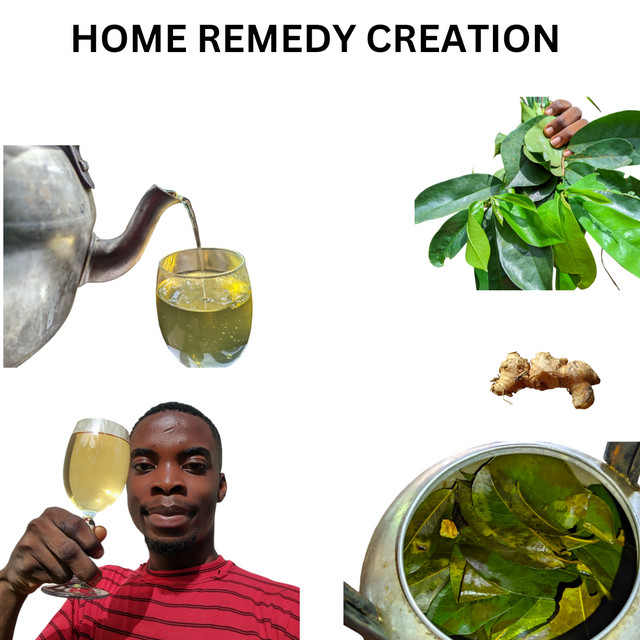 |
|---|---|
| Duration | 8 minutes |
| Colour | Pale green |
| Dosage | Taken in a sizeable cup as shown above....1 cup per day. |
| Thoughts | Works best for cold when combined with ginger. |
Herbal Infusion Experiment
Infuse two different herbs (one for digestion and one for stress/anxiety) in water. Document the process, duration, and your thoughts on the end result. |
|---|
This sounds more like a chemical reaction to me. Element A and Element B reacting together to form a product. If research is not done as to the quantity of elements to use that'll react, it can bring about a disastrous result. Same with the infusion of two different herbs. You must do research on the herbs first to see how they react under heat. So for this question, I'll be using lemon grass and sour sop leaves.
| Lemon grass | Stress and anxiety relief |
|---|---|
| Sour sop leaves | Digestion |
You may be surprised I'm using sour sop leaves that's meant for colds to aid digestion. One thing you need to know about herbal medicine is that they can cure varieties of ailments. It's not like white drugs that have specific effects. If you drink lemon grass or sour sop leaves, you can be relieved of stress, cold, malaria, headache, pain, etc. So I'll be combining these two leaves together to see the outcome it would provide.
Lemon grass + Sour Sop leaves = Methyl Orange 🤣 Orange Juice medicine.
 Element A - Lemon Grass Element A - Lemon Grass |  Element B Element B | 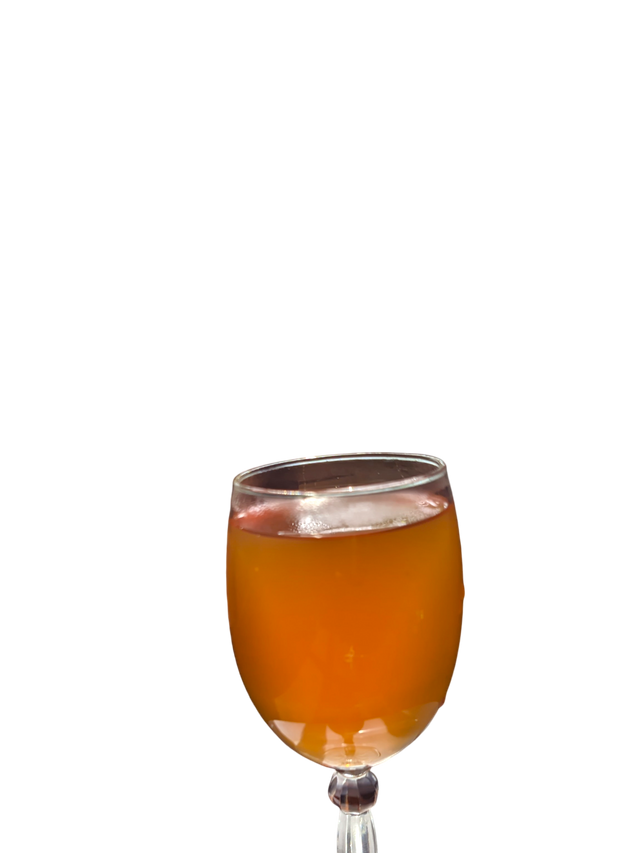 Product - Orange Herbal Juice Product - Orange Herbal Juice |
|---|
If I'm to think, it's the colours of these medicines they use in compressing to bring about white drugs. Just a thought, Sha. These are the steps I carried out to prepare this.
Steps or process
I washed my sour sop leaves and lemon grass leaves and contained them in a kettle with my ginger inside.
I boiled it for 10 minutes to blend its pigment very well and produce an effective product. When I brought it down from the heat source, I left It in the kettle for 3 hours before filtering It. It was bitter, though. I added just a cube of sugar and then had a taste of it. It tasted nice, though slightly bitter. That was how I successfully infused two leaves to bring out this desirable product.
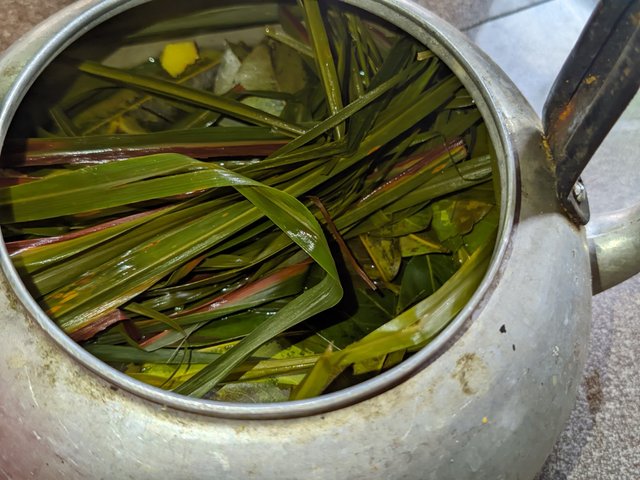 | 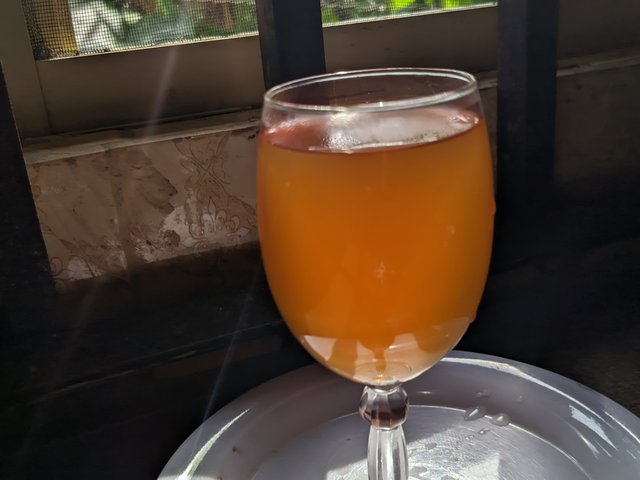 |  |
|---|
Documentation
| Duration | 10 minutes |
|---|---|
| Colour | Orange |
| End result | This would work for malaria, typhoid, and cold headaches but should be taken in moderation based on the dosage below. |
| Dosage | 1 cup per day on a sizable cub shown above. |
That brings me to the end of the assignment. I felt so good learning new things theoretically and how to practically prepare these medicines myself. I invite @ahsansharif, @o1eh and @ripon0630
Cc,
@afzalqamar
Dear student, I hope you are learning a lot about herbal medicine.
Plagiarism Free | ✅
#steemexclusive | ✅
AI Free | ✅
Downvoting a post can decrease pending rewards and make it less visible. Common reasons:
Submit
https://x.com/bossj23Mod/status/1853926642785120619?t=ZaysJetzolt3101PtLmzlQ&s=19
Downvoting a post can decrease pending rewards and make it less visible. Common reasons:
Submit
Amigo de verdad disfrute mucho leerte y aprender con tu publicación a conocer mas sobre las hierbas que sirven para el resfriado y la digestion.
Casi todas las que usaste son las qué yo he usado con excepción de la guanábana no sabía que servia para el resfriado.
Me parece excelente lo que dices sobre conbinar hierbas yo tambien soy bastante delicada con eso primero hay que investigar si funcionan.
Te deseo lo maximo en el concurso.
Downvoting a post can decrease pending rewards and make it less visible. Common reasons:
Submit
I also use lemon grass to cope with stress. I'll try adding ginger too next I make the herbal drink. Thanks for engaging in this activity 😊
Downvoting a post can decrease pending rewards and make it less visible. Common reasons:
Submit